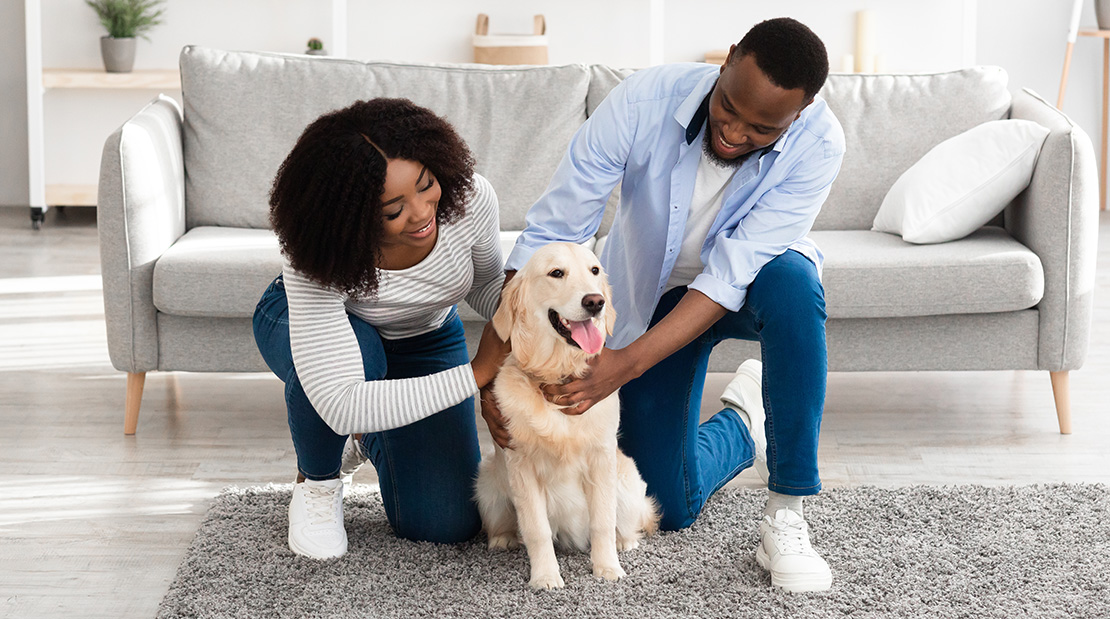
Tips for New Pet Parents
Becoming a new pet parent can bring so much joy, but it’s also a big responsibility. Many underestimate the time and financial commitment necessary to ensure a pet’s well-being. As an experienced veterinarian, I have some tips that can help you make an informed decision about becoming a pet parent and creating a smooth transition for you and your pet.
1. Do Your Research
Before adopting a pet, you should take the time to reflect and research how a dog, cat, or any other animal will fit into your family dynamic. For instance, if you have children, consider the size and temperament of an animal. Similarly, if you or a family member have mobility or strength issues, you want to consider adjustments that may be needed if bringing a strong, active, or giant breed dog into your home.
It’s also important to consider your lifestyle and living conditions. If you travel frequently or work long hours, ensure you’ll have the proper time necessary to meet the needs of your prospective pet. Likewise, if you live in a small apartment, choosing an animal that can be comfortable in smaller spaces is an important consideration. It’s also important to research common health issues that may affect the breed you are interested in.
2. Prepare Your Home
To prepare your home for a new pet, you’ll need to get a few important supplies from a store like PetSmart. Depending on your pet, you’ll need bowls, leashes, litter boxes, and a crate or kennel. You should also consider the best diet for your pet depending on their breed, size, and life stage. There are specific diets for life stages like puppy, kitten, large breed, and elderly animals. You should also invest in potty training tools and enrichment-like toys to help your new pet comfortably adjust to their new home.
An additional quick tip: The rule of thumb for litter boxes is one per cat, plus one additional to make sure your cat(s) has (have) adequate options for eliminating themselves.
3. Visit the Vet
When you get a new pet, schedule an appointment with a vet as soon as possible. Even if you’re getting a very young dog or cat that may not be ready for vaccines, establishing a point of contact with a veterinarian will give you the guidance and support necessary for your pet’s well-being. This relationship also allows you to get personalized answers to any questions that may come up in the early weeks of caregiving.
4. House Training
With commitment and consistency, house training can go smoothly. There’s no need to be afraid of crate training. Crates can provide your pet with their own safe space which helps differentiate them from spaces where they should go potty. Puppy pads are also a great option, just make sure your pup isn’t chewing or eating them. For cats, start with a smaller litter box and gradually increase the size. It’s important to research your pet breed’s specific needs and to keep a consistent daily schedule.
5. Consider Hiring a Trainer
Dogs are not born with all the skills needed to adapt to your home life. They need consistency, reinforcement, and patience. If you don’t have the time to train your pet effectively, I suggest hiring a professional. Trusting a professional can give you and your pup the confidence and skills you’ll both need to thrive in this new setting.
6. Prioritize Vaccinations
Vaccinations play a vital role in a pet’s health, especially for puppies and kittens who need protection from deadly viruses like Parvo and Distemper. It’s important to note that until your new pet has had their vaccines, they should not be in public places, even in a pet store. They also shouldn’t be walking on the ground in outdoor areas until they’re fully vaccinated.
In Texas, where Cy-Fair Animal Hospitals are located, the Rabies virus vaccine is mandated by law. We also suggest other vaccines like bordetella, leptovirus, and feline leukemia; it’s best to consult with your veterinarian on a specific vaccination schedule for your pet.
Becoming a pet parent is a big step, but it’s also a gratifying experience to build a relationship with an animal that trusts you, relies on you, and is comfortable in your home. Remember to research, prepare your home, prioritize care for your puppy’s physical and emotional well-being, and enjoy all the love and happiness of being a pet owner. If you need a veterinary home for your new pet, contact Cy-Fair Animal Hospital for compassionate and experienced care.

